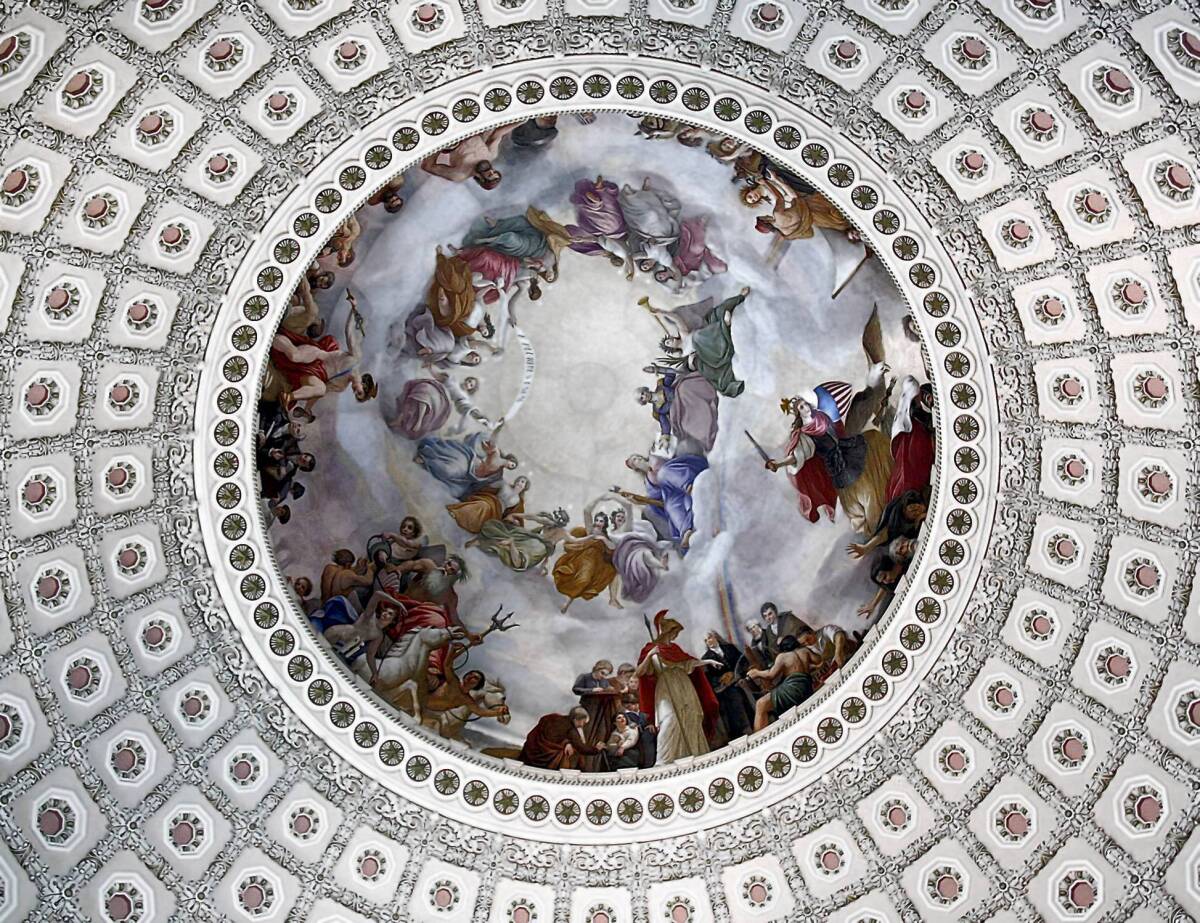U.S. Capitol artist honored with Congressional Gold Medal

- Share via
WASHINGTON — Constantino Brumidi came to the U.S. Capitol in the 1850s after emigrating from Italy, found its walls bare and worked until his dying day to adorn them with frescoes and friezes.
“The art here doesn’t sit idle on display every day. It summons the building to life and replenishes the soul of the Congress,” House Speaker John A. Boehner(R-Ohio) said before he and other congressional leaders posthumously awarded Brumidi the Congressional Gold Medal. “This of course is the legacy of Brumidi, who filled his work with such color and attention to detail and tradition that it is unavoidable and too captivating to be ignored.”
The award marks another step in the rehabilitation of Brumidi’s works, which had been damaged over time.
Brumidi crammed the corridors and rooms of the Capitol with scenes from American history. His greatest projects were “The Apotheosis of George Washington” in the Capitol Rotunda, which shows the first president ascending to heaven flanked by women representing the colonies, and the frieze below it depicting American history from the arrival of Columbus.
Senate Majority Leader Harry Reid (D-Nev.) described his early appreciation for the artist, recalling his awe roaming the halls of the Capitol as a police officer on the night shift in the 1960s.
“I remember being this kid from a town in Nevada and looking up at these paintings and thinking it was a miracle,” he said.
Over the decades, grime from gas lamps and tobacco smoke had dulled the paintings and distorted the colors. But in the 1980s, restoration work began and evidence of Brumidi’s talent started to reappear.
A bicentennial celebration of Brumidi’s work was held in 2005, supported by the Constantino Brumidi Society and Italian American lawmakers. Brumidi had also painted churches in New York and Baltimore.
More to Read
Sign up for Essential California
The most important California stories and recommendations in your inbox every morning.
You may occasionally receive promotional content from the Los Angeles Times.











